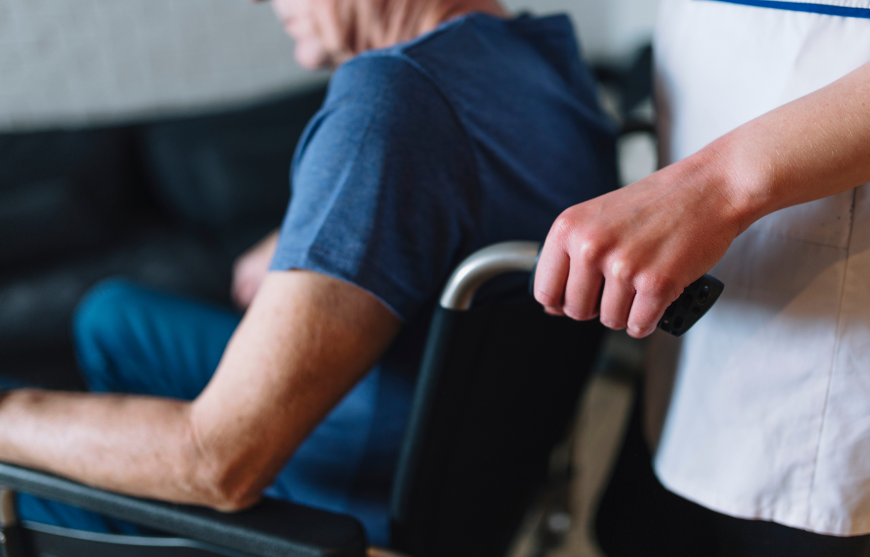Understanding Pelvic Pain
Pelvic pain is more than just a passing discomfort; for many people, it disrupts work, relationships, and overall quality of life. This pain can feel sharp, dull, or persistent, and it may radiate to the lower back or legs. In women, pelvic pain can often coincide with menstrual cycles or reproductive health conditions, while men may experience it due to prostate or bladder issues. Some people notice the discomfort comes and goes, while others live with chronic pain lasting six months or more. The constant presence of pain can impact mobility, sleep, and emotional well-being. Understanding that pelvic pain is not a one-size-fits-all condition is the first step toward getting relief. By addressing both symptoms and underlying causes, individuals in Indianapolis can find a clear path to healing.
Causes of Pelvic Pain
The sources of pelvic pain are wide-ranging and often overlap, which makes professional evaluation essential. Gynecological conditions such as endometriosis, uterine fibroids, and ovarian cysts are among the most common contributors for women. Men and women may both experience pain caused by urinary tract problems or interstitial cystitis, which can lead to burning sensations, pressure, and discomfort. Musculoskeletal issues like pelvic floor dysfunction, muscle spasms, or hip and back misalignment can also trigger long-lasting pelvic pain. Digestive-related conditions such as irritable bowel syndrome can make the pain feel worse, particularly after meals. Stress and mental health challenges play a role too, as tension often builds in the pelvic floor muscles, worsening symptoms. Understanding these causes allows healthcare providers in Indianapolis to create targeted, effective treatment plans for lasting pelvic pain relief.
Why Seek Pelvic Pain Relief in Indianapolis
Living with untreated pelvic pain can feel isolating, but Indianapolis offers access to highly trained healthcare providers who understand the complexity of this condition. The city is home to specialists in gynecology, urology, physical therapy, and integrative care who work together to address multiple layers of pelvic discomfort. Many clinics in Indianapolis provide a multidisciplinary approach, meaning patients can access medical treatment, physical therapy, and holistic methods in one setting. Advanced diagnostic tools available in local hospitals and clinics also make it easier to uncover the exact root cause of pelvic pain. Local providers emphasize personalized care, tailoring solutions to each individual’s medical history and lifestyle. Patients often benefit from shorter wait times and more comprehensive follow-up care compared to larger metropolitan centers. By seeking pelvic pain relief in Indianapolis, residents can expect both expertise and compassion in their treatment journey.
Treatment Options Available in Indianapolis
Residents seeking pelvic pain relief in Indianapolis will find a wide spectrum of treatment options. Medical interventions are often the first step, including imaging tests, diagnostic evaluations, and prescription medications that help reduce inflammation or manage acute discomfort. Some patients may also benefit from targeted injections or hormone therapy depending on the underlying cause. Physical therapy is a highly effective non-invasive option, focusing on pelvic floor relaxation, muscle balance, and core strengthening. Trained physical therapists in Indianapolis use tailored exercise programs and manual therapy techniques to improve posture and reduce tension. For those who prefer a more holistic route, many clinics also offer acupuncture, chiropractic adjustments, massage therapy, and mindfulness practices to relieve stress-related pelvic pain. When conservative measures are not enough, minimally invasive surgical solutions are available at local hospitals, ensuring that patients have access to the most advanced care.
Lifestyle and Self-Care Strategies
Alongside medical treatments, lifestyle changes can make a significant difference in managing pelvic pain. Regular, gentle exercise such as yoga, walking, or swimming can improve blood circulation and ease stiffness in the pelvic area. Nutrition also plays a role; an anti-inflammatory diet rich in fruits, vegetables, lean proteins, and whole grains may help reduce discomfort. Hydration is equally important, as adequate water intake supports bladder health and reduces irritation. Many individuals find relief through heat therapy, such as applying a warm compress or taking a hot bath to relax tense muscles. Stress management is another key factor, since anxiety and tension often intensify pelvic pain symptoms. Practices like meditation, deep breathing, and journaling can be valuable tools for both physical and emotional wellness. By incorporating these strategies consistently, individuals in Indianapolis can enhance the effects of professional treatments and feel more empowered in their recovery.
Choosing the Right Pelvic Pain Specialist in Indianapolis
Finding the right specialist is an important step in achieving lasting pelvic pain relief in Indianapolis. Patients should look for providers who have experience treating a wide range of pelvic health conditions and who take a personalized, patient-centered approach. During the first consultation, it is wise to ask questions about diagnostic processes, available treatment methods, and expected timelines for recovery. A good provider should also explain the role of physical therapy, holistic methods, and medical interventions in a clear and compassionate way. Many people benefit most from a collaborative care team, where gynecologists, urologists, physical therapists, and holistic practitioners work together. This team approach ensures that no potential cause is overlooked and that treatment addresses both physical and emotional needs. Ultimately, choosing a specialist in Indianapolis means selecting someone who listens, respects your concerns, and is committed to helping you achieve lasting comfort.
Real Benefits of Localized Care in Indianapolis
One of the strongest advantages of seeking pelvic pain relief in Indianapolis is the accessibility of high-quality, localized care. Patients can find community-based clinics that offer advanced services without the need to travel far distances. This proximity allows for regular follow-ups, which are crucial in monitoring progress and adjusting treatments as needed. Many facilities in Indianapolis also invest in state-of-the-art technology and innovative therapies, ensuring patients receive cutting-edge care close to home. Beyond clinical settings, individuals can connect with support groups and community resources dedicated to pelvic health. These local networks provide education, encouragement, and practical advice for navigating everyday challenges related to pelvic pain. By receiving treatment in Indianapolis, patients benefit not only from medical expertise but also from a community committed to healing and well-being.
Frequently Asked Questions (FAQ)
1. What types of specialists treat pelvic pain in Indianapolis?
Pelvic pain may be treated by gynecologists, urologists, gastroenterologists, pain management doctors, and pelvic floor physical therapists. Many patients find success through a combination of these specialists working together.
2. How do I know if my pelvic pain requires medical attention?
If your pelvic pain is persistent, severe, or interfering with daily activities, it’s important to seek medical care. Sudden sharp pain, heavy bleeding, or fever with pelvic pain should be treated as urgent.
3. Is pelvic floor therapy effective for chronic pelvic pain?
Yes, pelvic floor therapy is one of the most effective treatments for chronic pelvic pain. It focuses on strengthening, relaxing, and retraining muscles to improve function and reduce discomfort.
4. Are there natural remedies that work alongside medical treatments?
Many patients in Indianapolis benefit from combining medical treatments with natural remedies such as acupuncture, yoga, dietary changes, and stress management techniques. Always consult with your provider before starting new remedies.
5. How long does it take to experience pelvic pain relief with treatment?
Relief timelines vary depending on the cause of the pain and the type of treatment. Some people notice improvement within weeks, while others require several months of consistent care for long-term relief.






